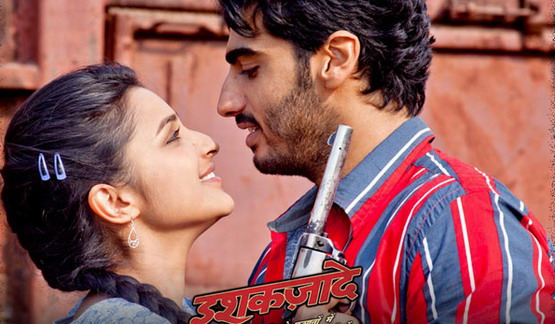
Habib Faisal’s recent release ‘Ishaqzaade’, that has been garnering good response from the audience, touches on the sensitive subject of Hindu-Muslim divide in India.
In the movie the hero Parma (Arjun Kapoor) falls for a Muslim girl Zoya (Parineeti Chopra) which doesn’t go down well with their families as well as people around them.
Director Habib Faisal said that no matter how modern India claims to be currently communal divides still exists in it.
“It does. And to say by addressing the palpable problems that arise when a Hindu boy falls in a love with a Muslim girl is according to me unrealistic. Look around. The Hindu-Muslim divide is everywhere. In a so-called metropolitan city housing societies do not allow Muslims or Hindus depending on which area you're house-hunting in. In fact I've witnessed more communal integrity in rural areas,” he said.
The director said that he realized the extent of divide after the demolition of sacred Babri Masjid.
“These differences are normally swept under the carpet. I don't think that helps. The fact is, we have not really progressed intellectually in understanding let alone bridging the chasm between the progressive and regressive India. Just the other day a senior police officer in Bangalore publicly endorsed honor killing. Why does a couple belonging to two different cultures or communities have to meet surreptitiously in public places? I'll tell you why. Because every parent, no matter how progressive outwardly, throws a fit if his or her child brings a mate home. This is why I made the Muslim girl Zoya's family an educated relatively sophisticated bunch of people. I wanted to show, no matter how educated people still suffer from lethal prejudices about inter-communal alliances,” he said.
Directed Habib Faisal has given his movie unabashed treatment of Hindu-Muslim relations. He even went ahead and made his hero Parma address his heroine Zoya as ‘Mussalli’.
“In the beginning he means to rile her by calling her a 'Mussalli.' Later it becomes his term of endearment for her. Why are focusing on the names? The problem is very deep. Hindus don't even know how to greet Muslims so a social level. They wonder if they should say 'Salaam' or 'Namaste'. In my film when Zoya takes her lover Parma to her house he doesn't know how to greet Zoya's parents. The initiation of a dialogue between two cultures starts on the wrong note,” he said.
He admitted that he was apprehensive on how the Censor Board would accept his movie.
“There's so much ‘Ishaqzaade’ that we as movie makers and as a society in the larger context tend to sweep under the carpet. But if I as Muslim filmmaker shied away from addressing the issue headlong in attempting a Hindu-Muslim love story, then I think I'd have failed to convey what I had set out to. The censor bard was exceptionally tolerant. The love-making scene is not gratuitous. I shot it in a long single-shot scene. If the censors had asked me to cut I wouldn't have been able to,” he said.
The director said that he tried to stay away from abusive language in the movie.
“I knew I had the license to let them get abusive. But I don't use abusive language in my speech and I'd be uncomfortable if my characters did the same. Besides I find the generous use of BCs and MCs in the films set in the North Indian heartland distracting. Audiences laugh and snigger when a character uses abuses. In this day and age of 'D.K Bose' my demurral on expletives is perhaps a little outdated. I'd rather be true to myself than trendy,” he said.
He said that his lead pair was the main reason for the movie’s success.
“Arjun Kapoor was put on a six-month trial period to see if he fits into the part of Parma. To his credit he kept at it until he got it right. As for Parineeti I had to take her native 'punjaabiyat' out of her and make her this Uttar Pradesh his mussalman ladki Zoya. I was lucky with my actors. Except for Gauhar Khan I wanted no known faces in the supporting cast. I stuck to my guns,” he concluded.



